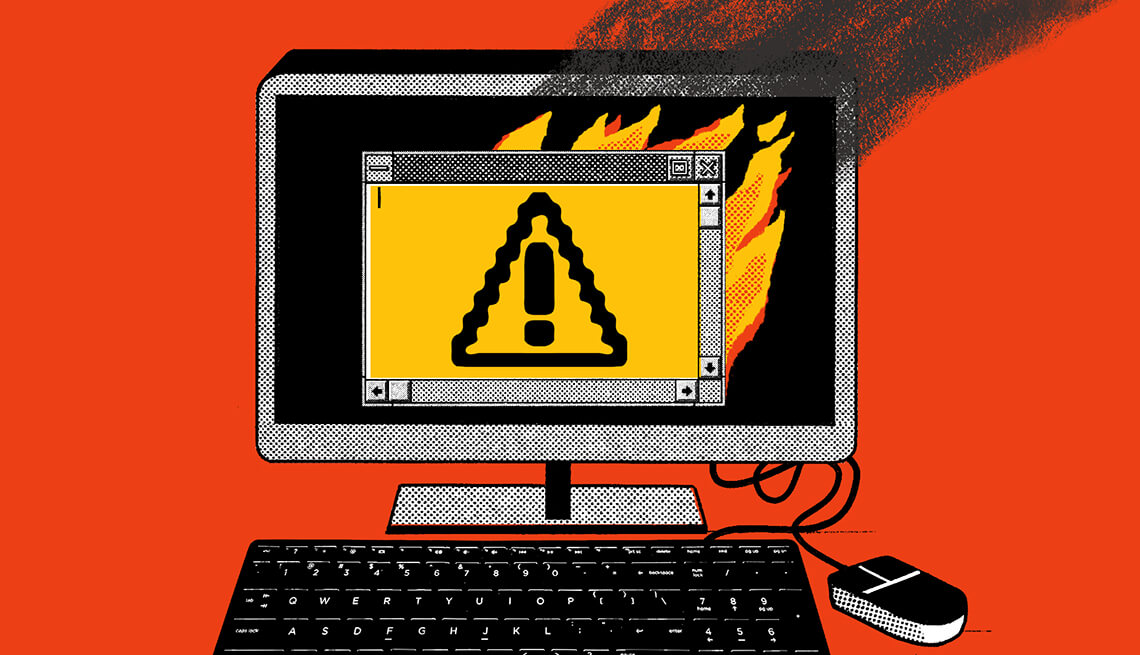Daily, we hear news about systems getting targeted by hackers and it is because the security of that computer isn’t strong enough to prevent hackers from getting access over your computer. The question most people have is how can they protect their computer from malware and viruses so, their data and the rest of their things aren’t compromised.
Here are some basic, yet useful tips that help you to protect your computer from malware and viruses:
1. Install a Powerful Antivirus
Yes, it is true that Windows has its own Antivirus Program that protects you against potential viruses and threats but it isn’t that much power to protect you against advanced viruses and threats. There are certain antivirus programs available that can provide you security much more than you ordinary Windows Defender. This may include antivirus programs like Norton, Avast, Avira, Comodo, etc. These antivirus programs may cost you some fee for extra features but these are worth the investment.
This investment is totally worth it and is a small price to pay for harm and damage that can occur to your PC when it gets infected.
There are numerous free antivirus software available but keep in mind that some of these antivirus programs actually bring the viruses themselves and they come pre-installed with viruses that can infect your PC. So, always install a trustworthy antivirus program.
2. Scheduled Automatic Scans
It is always good to have some sort of antivirus program installed on your PC that provides real-time protection against viruses and malware so, you remain protected all the time.
Antivirus programs are meant to run in the background but still, it needs to be managed every once in a while. One of the important things that need to be set for an antivirus program is automatic scans.
Automatic Scans is when you configure your antivirus to run a full system scan every few days or weeks to make sure that it is doing its job. Choosing a late-night time when you are not using the PC is a preferred choice for automatic scans.
Make sure that your system is not turned off or in hibernation mode during the time of an automatic scan.
3. Keep your Operating System Updated
Keeping your Operating System updated, especially Microsoft Windows can be crucial to the security of your PC. Microsoft regularly releases new Windows updates with new security patches and bug fixes to patch any security flaws in Windows. This is done to protect users against viruses and hackers that can take advantage of those security flaws.
Make sure that Automatic Windows Updates are turned on and you install them as soon as they are released to keep your PC protected against security flaws.
4. Be Cautious While Dealing with Links and Attachments
This is a common mistake by which most people let viruses and malware into their PC. They are not cautious when they are opening a link or an attachment from an unknown person. It is advised that you should never open any links or attachments from an email by an unknown sender.
Whenever you are dealing with links or email attachments make sure that you are cautious and before downloading or opening any attachment, make sure that you run it through a virus scan to make sure that it is virus-free and safe to open.
5. Download Softwares from Trusted Websites only
Another commonly made mistake is that users don’t download the software from trusted/original websites. When you download software from an unknown or non-trusted website then there are chances that you may not be getting the legit software but instead, you will be getting a ripped-off version of the software that actually contains viruses and malware.
So, whenever you are downloading a program or software then always prioritize the official website of the developers or a trusted website. Otherwise, your PC will be infected without you even knowing about it.
6. Using Firewall
Using a Firewall is a wise option and people who have set up firewalls are protected against threats than users who haven’t set it. A Firewall basically monitors the incoming and outgoing traffic and it can block a certain type of traffic and prevent unauthorized access.
A firewall is available not only in your operating system, i.e macOS and Windows OS but it is also available on your Internet Router too and you can set it up from there too.
7. Avoid Downloading Pirated/Cracked Software
People in the search for saving money actually cost themselves by downloading pirated/cracked software. When you are downloading a pirated or cracked software then there is a high possibility of that software coming with pre-installed virus or malware that can easily spread into your PC once you install the software.
So, instead of downloading pirated software consider paying for the software to prevent your PC from getting infected with viruses and malware and also safe from hackers.
Image credit: Justin Renteria

